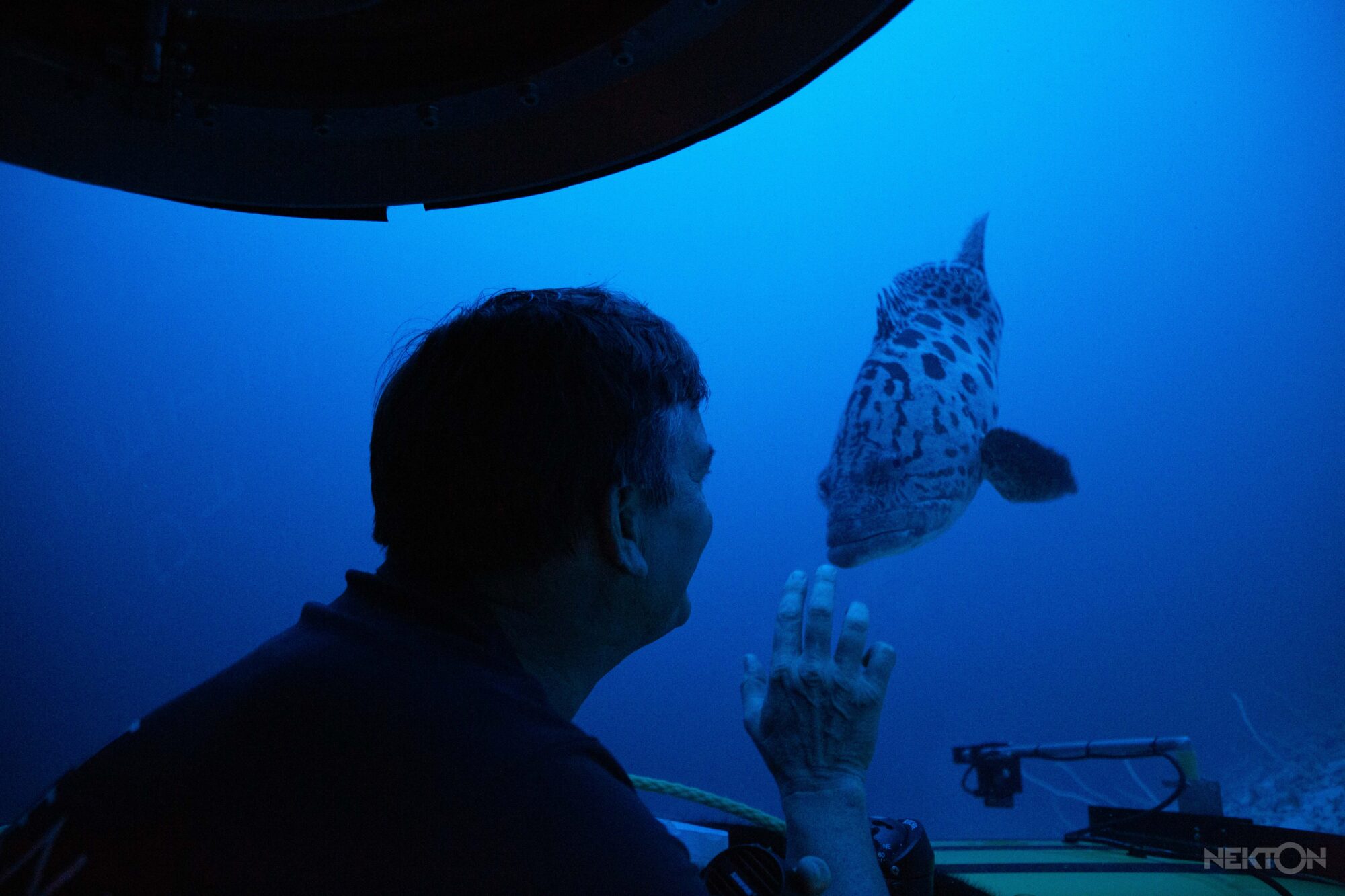

Since its inception in 2015, Nekton has been at the forefront of ocean exploration and conservation, transforming how we understand and protect the marine world. From groundbreaking scientific discoveries to historic collaborations with ocean nations, our timeline highlights the pivotal moments and achievements that have defined our mission.
Founded as a UK charity with funding from XL Catlin and Garfield Weston Foundation, Nekton established to ‘advance the scientific exploration and protection of the ocean’.
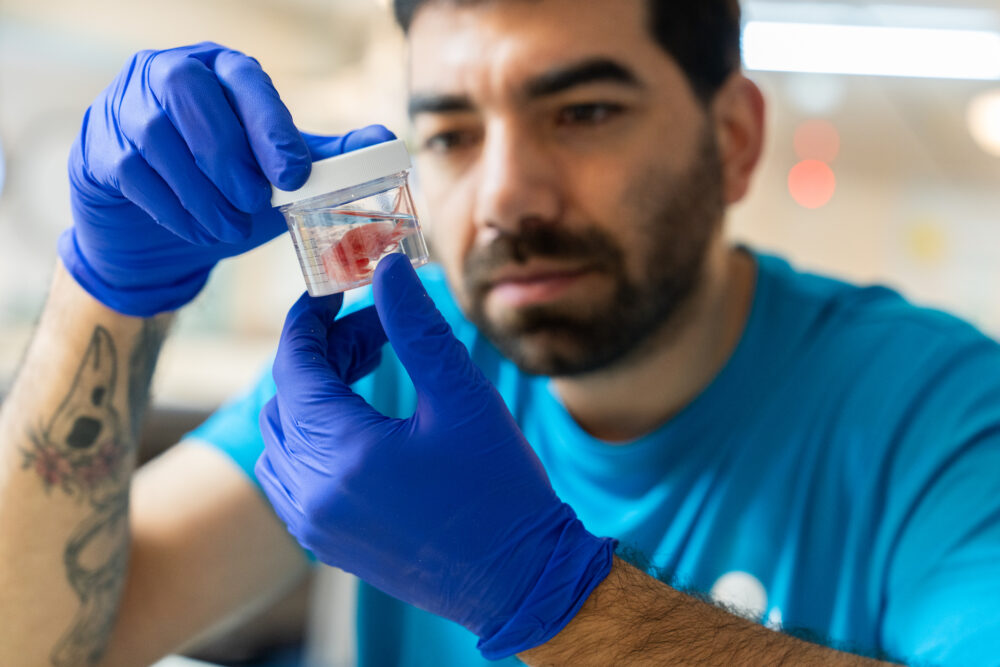
Nekton began its collaboration with the University of Oxford, setting the stage for future missions and research projects focused on ocean health.

Nekton’s first major expedition included over 30 partner organisations, including the governments of Bermuda and Canada. The mission featured two research vessels, technical divers from 8 countries, and state-of-the-art equipment like Triton submersibles. The team spent over 400 hours underwater, collecting 40,000 specimens and publishing 18 scientific papers.
Partnering with Sirius XM, Nekton hosts the deepest live radio comedy show with John Fugelsang, featuring celebrities like Mark Hamill and David Crosby. This unique event brought ocean awareness to a broad audience.
In partnership with UNESCO, Nekton launch an initiative to expand World Heritage site protections to the High Seas, raising awareness about critical, unprotected marine areas.
Partnering with Encounter EDU, Nekton launch an educational initiative reaching over 1 million students globally. The programme includes lesson plans, educational films, and immersive 360-degree videos. Award: BETT Best Educational Resource.
Including major mesophotic subsea forest on the summit and flanks of the Plantagenet Seamount (Argus), the deepest-recorded lionfish globally and new insights into coral bleaching and marine biodiversity, highlighting the importance of protecting deeper reef ecosystems.
Featured in Forbes with the article “Nekton Mission Director Oliver Steeds Gave Up His Career As A Journalist To Help Save The Oceans” as well as coverage including BBC, PBS, Telegraph, New Scientist, Guardian, Geographical. The Mission’s coverage by the Sky News team sparks Sky’s Ocean Rescue Campaign.
Nekton publish the GOSSIP protocol, field tested on the XL Catlin Deep Ocean Survey, and co-published with 15 leading marine scientists, sets the first multi-disciplinary standard for marine research, accelerating data analysis and supporting conservation efforts.
Nekton launches 360-VR film narrated by deep-sea pioneer Captain Don Walsh (along with Jacques Piccard, the first to full ocean depth in January 1960, codenamed by the US Navy, ‘Project Nekton’). VR art installation at the European City of Culture, immersing audiences in the ocean depths.
The leading luxury travel company in North America, Kensington Tours commits to long-term support of Nekton’s operations and the next series of Missions. The mission’s submersible to be named Kensington Deep.
Discovery of the Rariphotic Zone – the Rare Light Zone – in depths from 130m to 300m is confirmed in the waters around Bermuda. Over 100 new species discovered. Reported as ‘one of the largest new ecosystems found in the world in decades’
100 species discovered as scientists find new ocean zone (Telegraph)
100 new species discovered in Bermuda’s Twilight Zone (NY Post)
Exploring a new ‘Zone’ of deep-sea coral life – Hidden in Plain Sight (News Deeply)
New Black Coral species named(Zootaxa.)
Discovery of dozens of new species confirm biodiversity hotspot discovered in Bermuda (Journal of Phycology)
Deepest DNA sequenced algae(European Journal of Phycology)
Deeper reef fish fauna limiting applicability of deep refuge hypothesis & vulnerability of deep reefs to targeted fishing pressure and invasive species (Frontiers in Marine Science)
New I/D guide to Bermuda marine species published – including 100 new species discovered on the Mission – free online.
Unique biological communities found at mesophotic and rariphotic depths(Royal Society)
New algae species discovered reveals new details of trans-ocean distribution (Journal of Phycology)
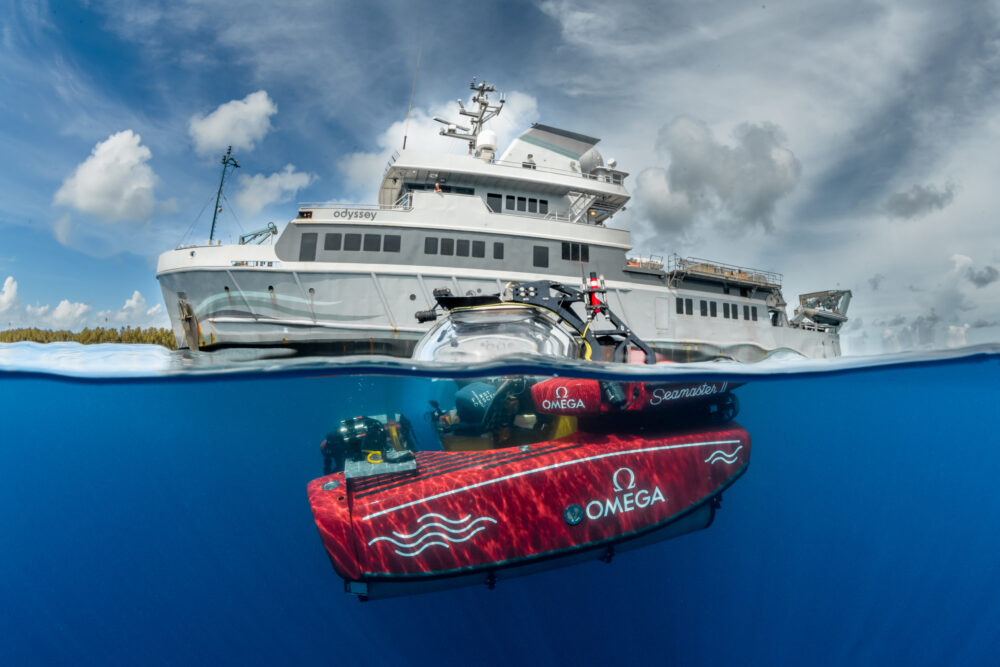
Omega announce their multi-year support and partnership to undertake a series of missions to explore and conserve the world’s most unknown and least protected ocean, the Indian Ocean. The mission’s submersible to be named Omega Seamaster II.
This initial survey in the Indian Ocean lays the groundwork for future research to establish a critical baseline data for marine biodiversity.
An Alliance of 40 partners join forces with Mission Partners Omega and Kensington, for a series of Missions to galvanise the scientific exploration and protection of the Indian Ocean.
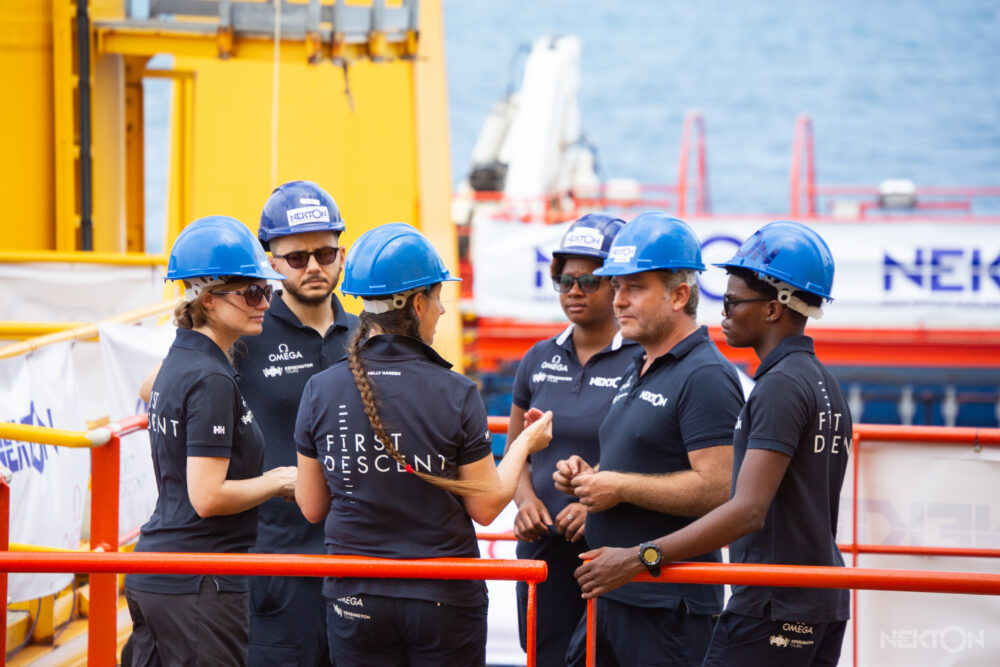
In partnership with the Government of Seychelles and a dozen Seychelles science, media and civil society partners – the Mission establishes the first baseline survey of ocean health from the surface to depth to inform the Government’s commitment to protect 30% of the nation’s oceanic territory. Two submersibles – Omega Seamaster II and Kensington Deep undertake pioneering research including 15 first descents in all major locations by Seychellois Aquanauts.
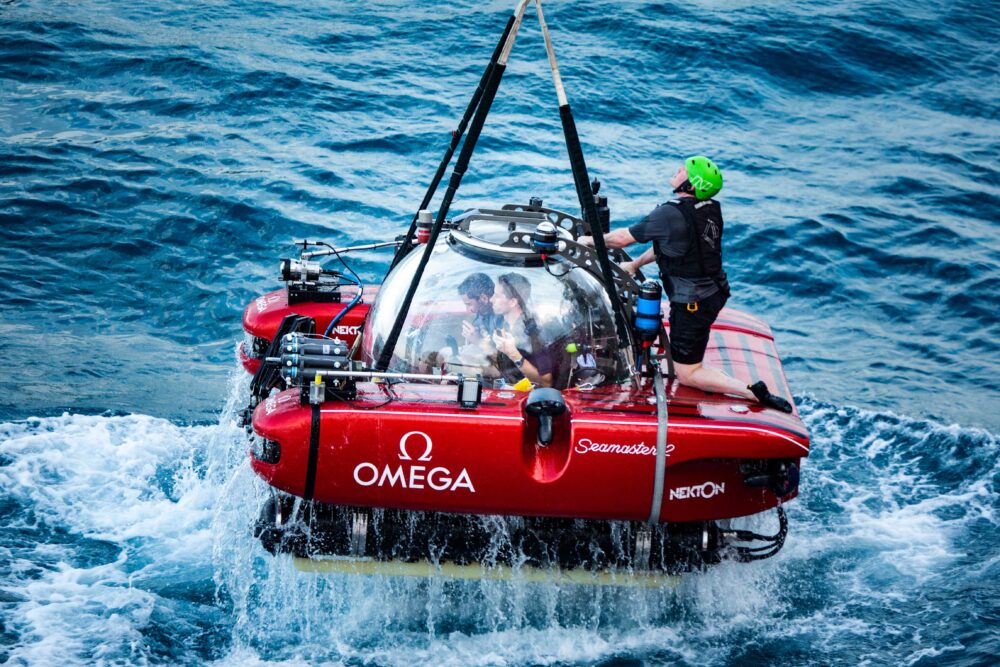
Nekton – in collaboration with Sonardyne, Associated Press, Sky and Inmarsat – broadcast the world’s first live subsea documentary series (Deep Ocean Live) and the first subsea Presidential Address. Broadcasts carried in 140 nations. Awards: Royal Television Society, IBC Broadcast Innovation.
Nekton and Boat International launch Yachts for Science, matching marine scientists with private vessels to enable essential field research.
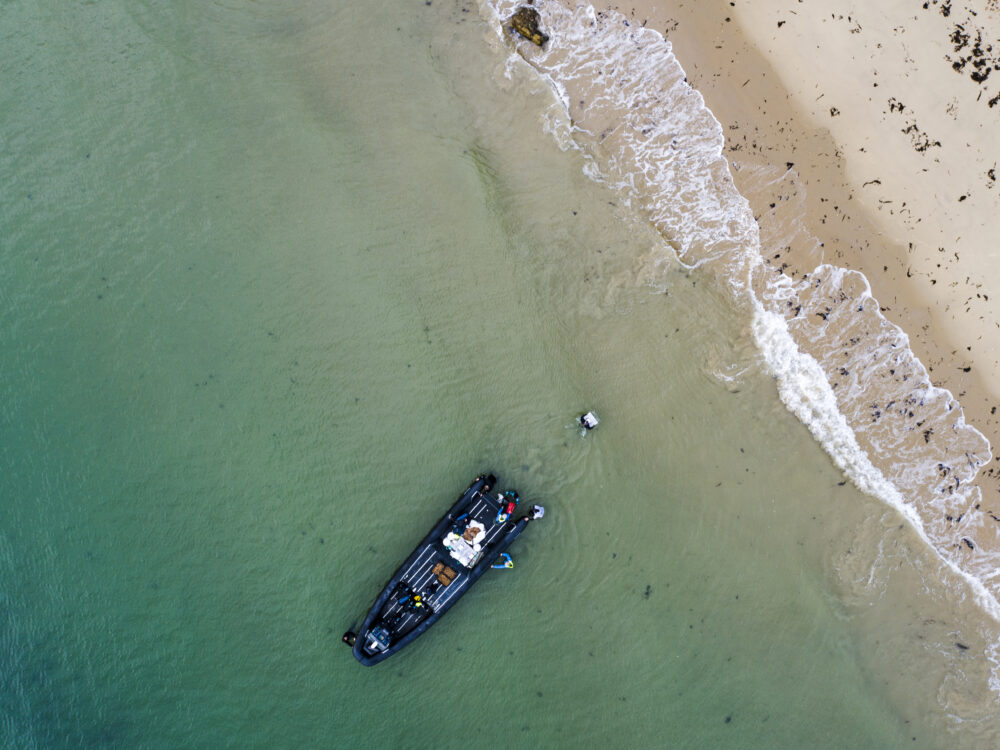
Data from First Descent: Seychelles mission supports the Government of Seychelles and TNC’s Marine Spatial Plan and their designation of protected areas and ongoing management.
Press Coverage:
Seychelles sets up protection for 30% of surrounding sea (Al Jazeera)
Seychelles achieves 30% Marine Conservation Commitment (Nature)
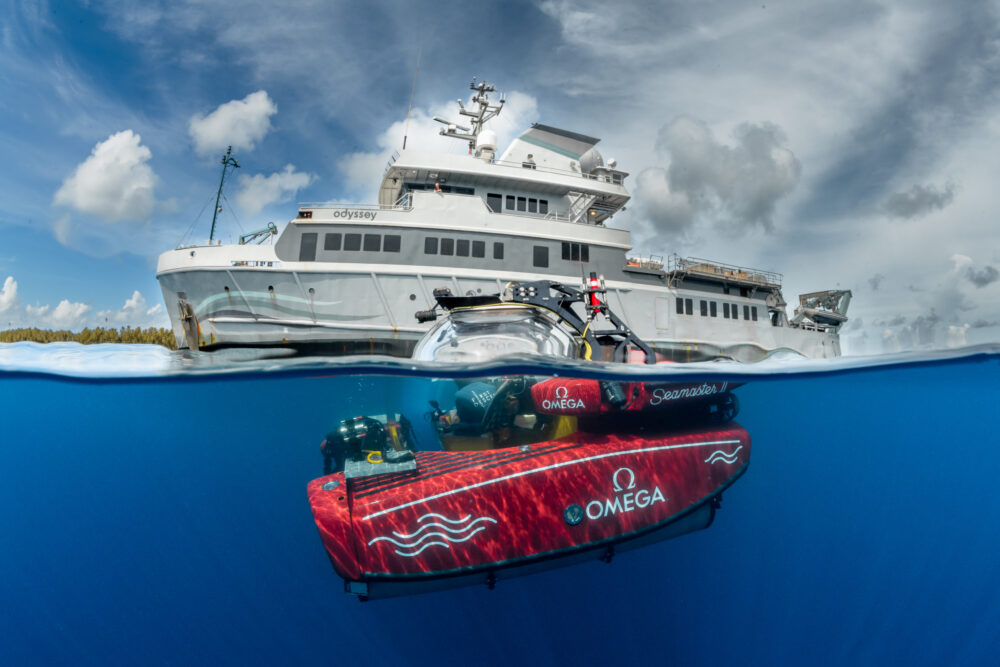
First Descent Mission Partner Omega launches a limited-edition dive watch in collaboration with Nekton to support ocean conservation initiatives, with proceeds supporting the First Descent missions.
Mission to explore and survey seamounts in Seychelles, Western Indian Ocean and Maldives with the Five Deeps team (including full ocean depth submersible, Limiting Factor) aborted due to covid pandemic. Mapping Seychelles’ deep ocean undertaken.
Nekton becomes marine research partners of Extreme E, the innovative electric off-road racing series Nekton Principle Scientist, Dr. Lucy Woodall is on the scientific committee advising Extreme E on the series’ education and research programmes, event logistics and impact as well as the recommendation of positive legacy initiatives which support local communities in each race location.
Developed in partnership with Schmidt Ocean Institute, the white paper Ocean Rising: The Quest to Inspire the Public outlines industry actions that have brought awareness to ocean science and sustainability. The paper looks at different sectors and areas of collaboration, highlighting new opportunities to engage the arts, broadcast media, social media, sports, gaming, fashion, food and others
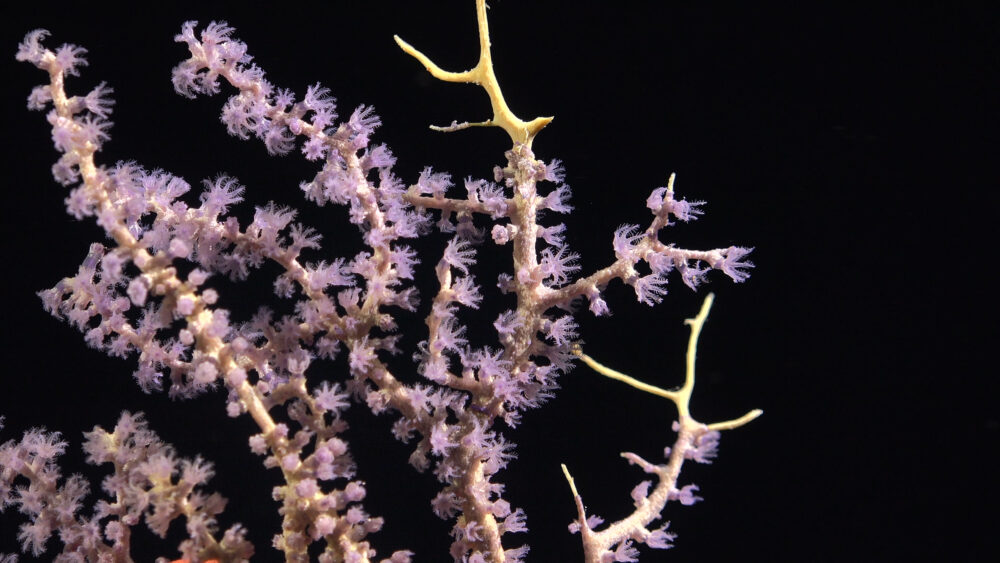
Nekton’s podcast, co-hosted by marine biologist Dr. Helen Scales and Nekton Founder, Oliver Steeds, brings ocean issues to a broad audience through storytelling and conservation discussions. With guests such as Nico Rosberg, Robert Sheehan, Kathy Sullivan, Jason Fox, Miranda Merron, Alenka Artnik and Steve Backshall.
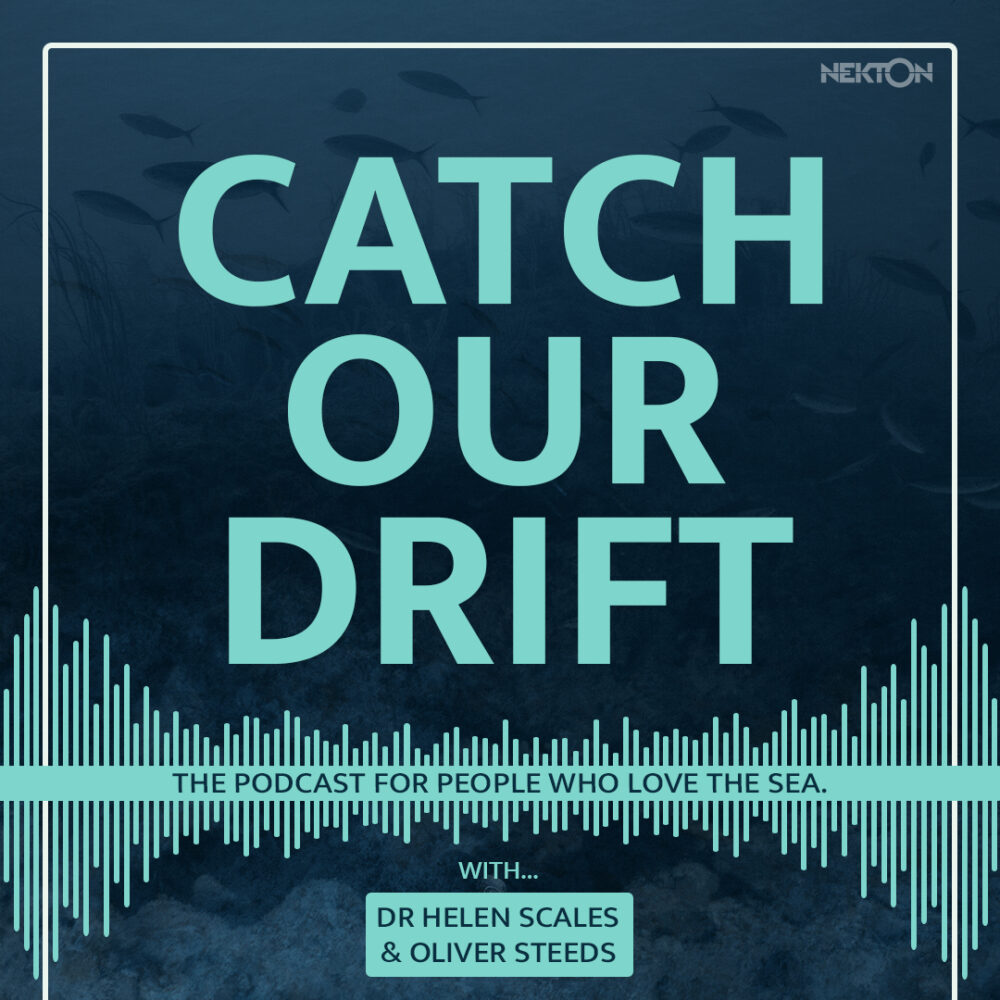
Nekton with collaborating scientists from the Western Indian Ocean publish impactful research on the extensive scale and impact of parachute science and recommendations for addressing it.
At the Nairobi Convention COP10, the ten governments of the Western Indian Ocean nations unanimously agreed to co-create an ambitious new regional ocean strategy and accompanying policies to support sustainable ocean development underpinned by science-based management.
It will take two years to create and ratify the new WIO regional policy and five year strategy. It will be implemented by the Danny Faure Foundation and supported by technical partners Nekton and the Nairobi Convention. The Government of Seychelles is the Coordinating Government.
In partnership with the Government of the Maldives, the Mission is the first systematic survey and sampling of the Maldives from the surface to 1000 metre depths to help inform the protection of extensive new protected areas and sustainable ocean governance. Voice of the Maldives global campaign results in 2900+ broadcast and digital content features by c.300 broadcasters across 120+ countries.
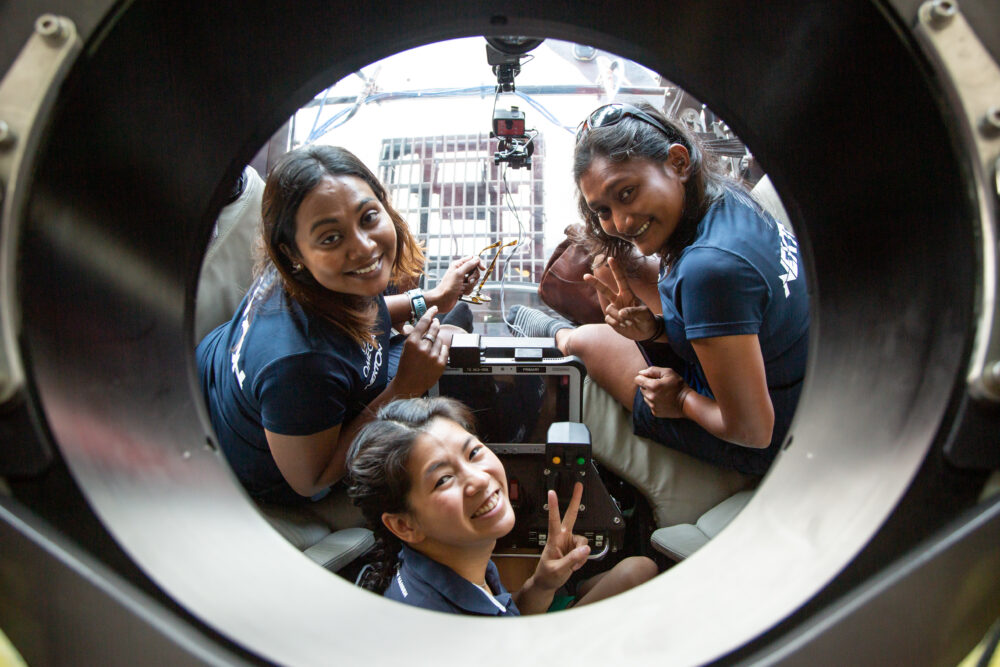
Conclusion of Maldives Mission’s research reveals the discovery of a new ecosystem at depths around 500metres across the Maldives. Defined by the steep subsea vertical cliffs and shelving terraces of the Maldives that provide the geomorphological conditions that support and trap ocean life, the team name it ‘The Trapping Zone’. It is highly likely to exist in other oceanic islands and also on the slopes of continents.
Press Coverage:
Forbes: New ecosystem discovered in Maldives
Daily Mail: Scientists discover new oasis of life
Maldives: The Edition: The Trapping Zone: Nekton mission discovers oasis of life in depths around Maldives
Live Science: Oasis of ravenous sharks beneath ocean
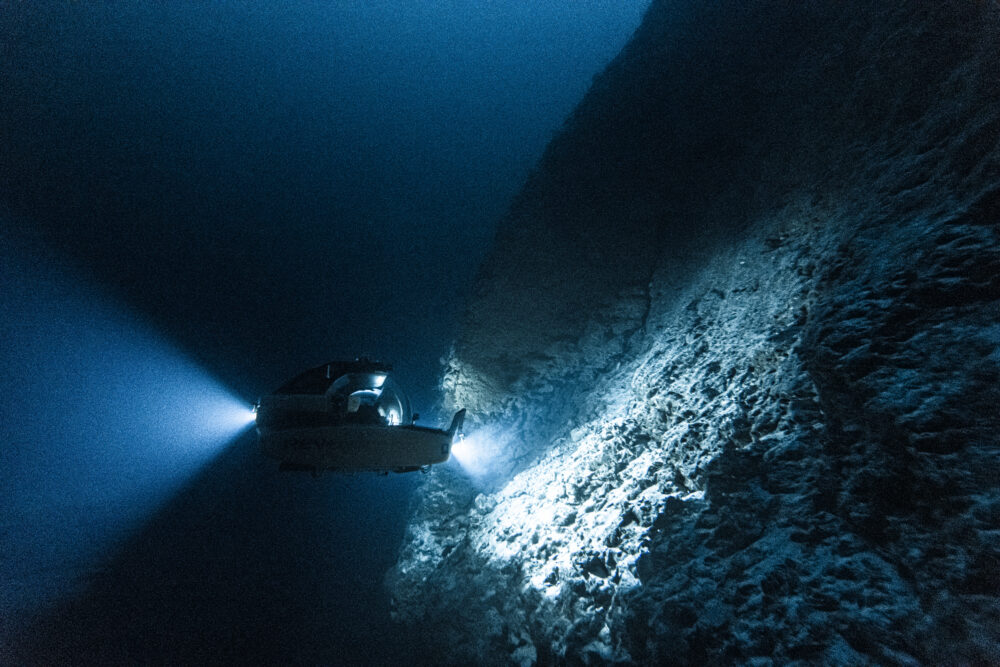
Released coinciding with the ‘Nature COP’ in Montreal, Nekton leads calls for the urgent conservation of the deep reefs, one of the planet’s largest and least protected ecosystems.
Released to coincide with the Global Plastic Treaty negotiations, Nekton’s research from the Weddell Sea Expedition reveals Antarctica to be a sink for microplastic pollution as well as a major airborne issue with synthetic fibres from textiles travelling by air from southern South America.
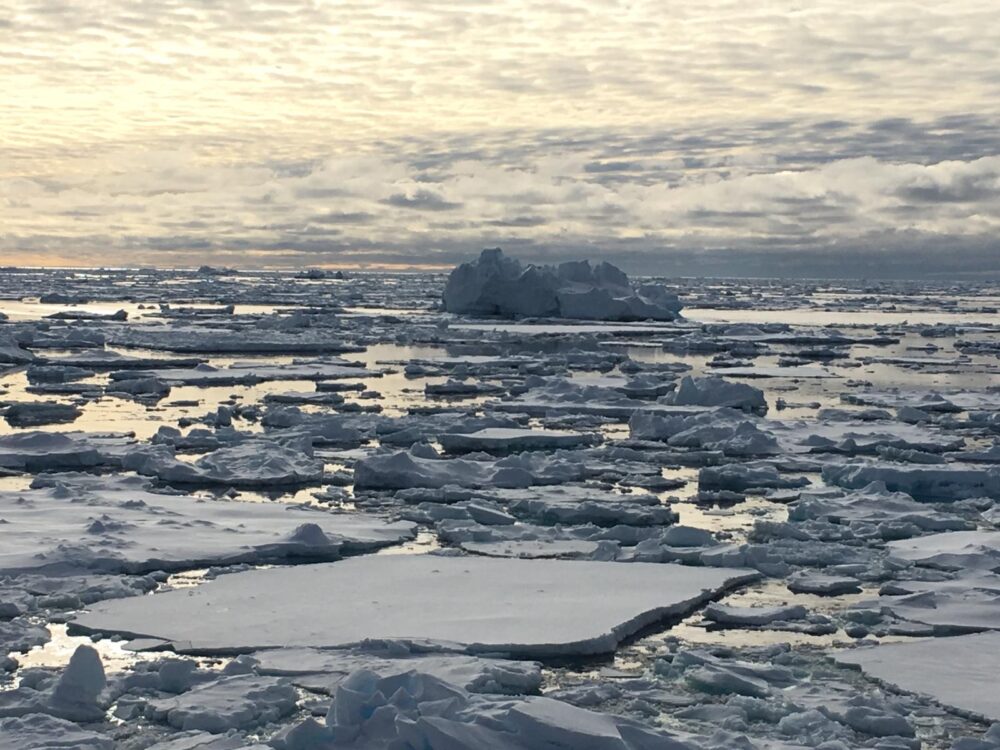
In partnership with The Nippon Foundation, the Ocean Census is the largest initiative to discover marine life in history. Through a combination of groundbreaking expeditions, cutting-edge scientific advancements, and innovative storytelling, the Ocean Census collaborates with ocean nations, philanthropic entities, governmental and commercial fleets, as well as subsea technology partners to explore biodiversity hotspots around the world.
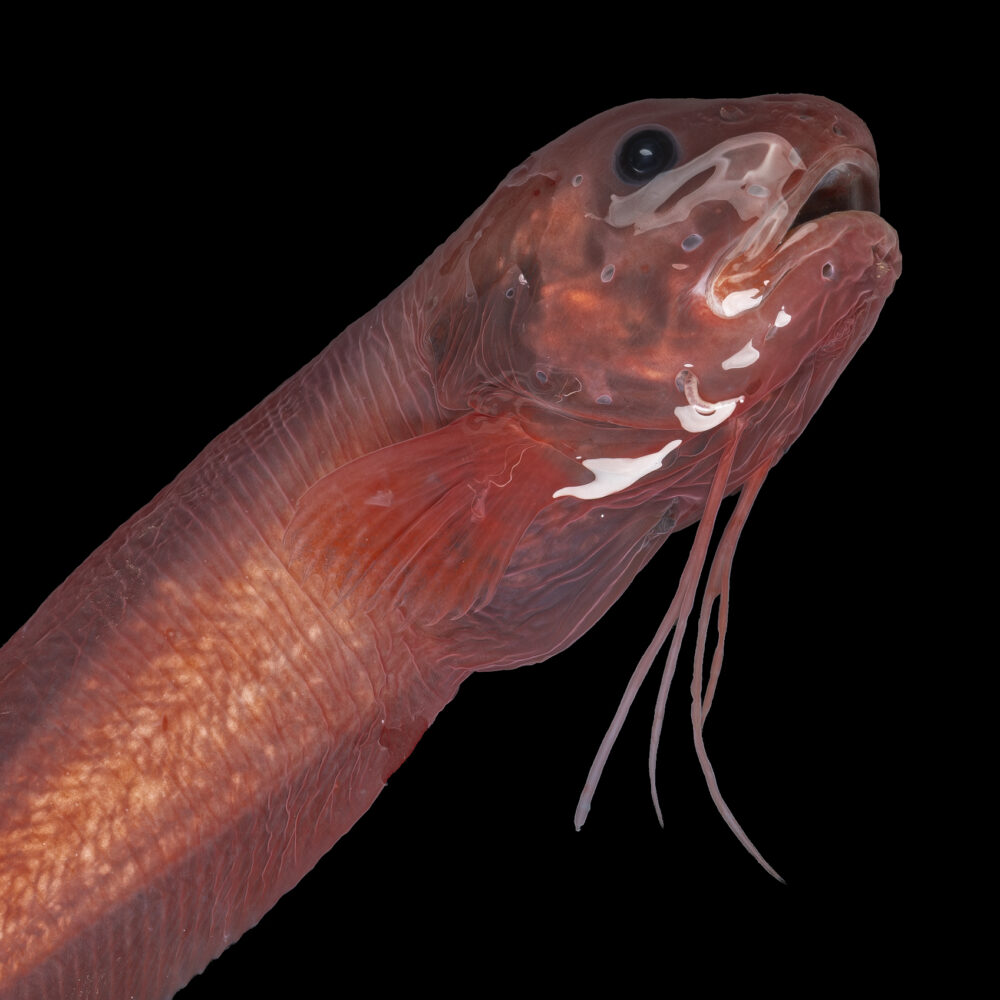
The first Ocean Census Flagship expedition assembles a world-class coalition of expertise in Tenerife to urgently catalogue new marine species at risk of extinction. The 21-day mission, running from 27 November to 17 December 2023, is augmented by a species discovery workshop featuring leading experts from the Ocean Census Science Network.
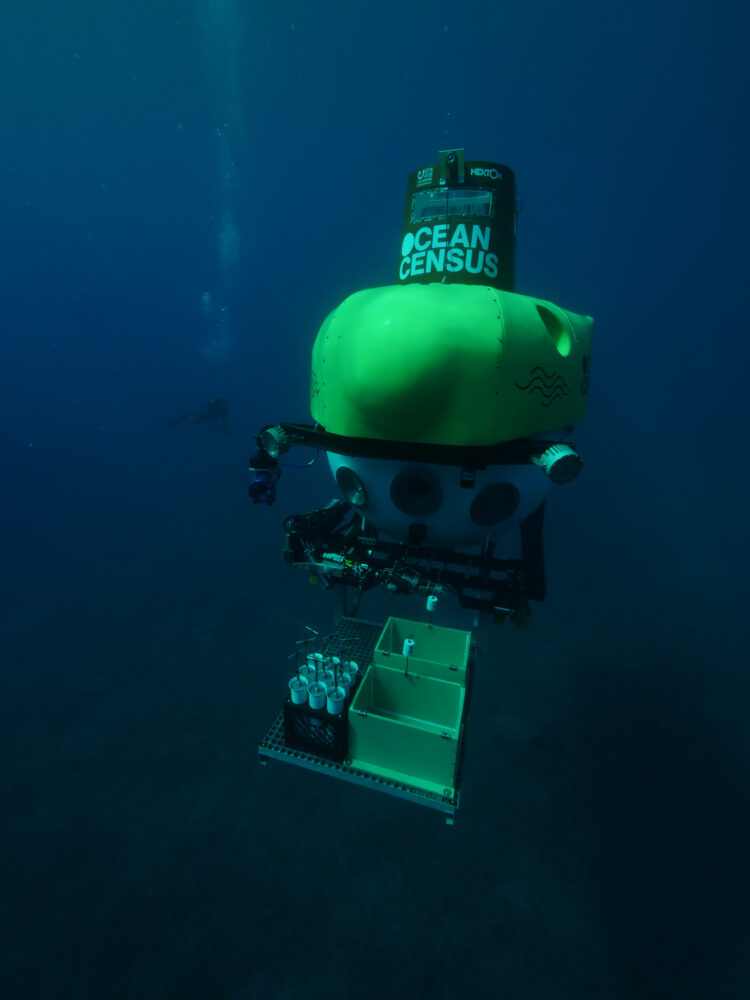
Ocean Census scientists, Professor Alex Rogers and Denise Swanborn, and colleagues on the AKMA3 oceanographic expedition, have discovered a rare find; the second ever mud volcano within Norwegian waters, the Borealis Mud Volcano.
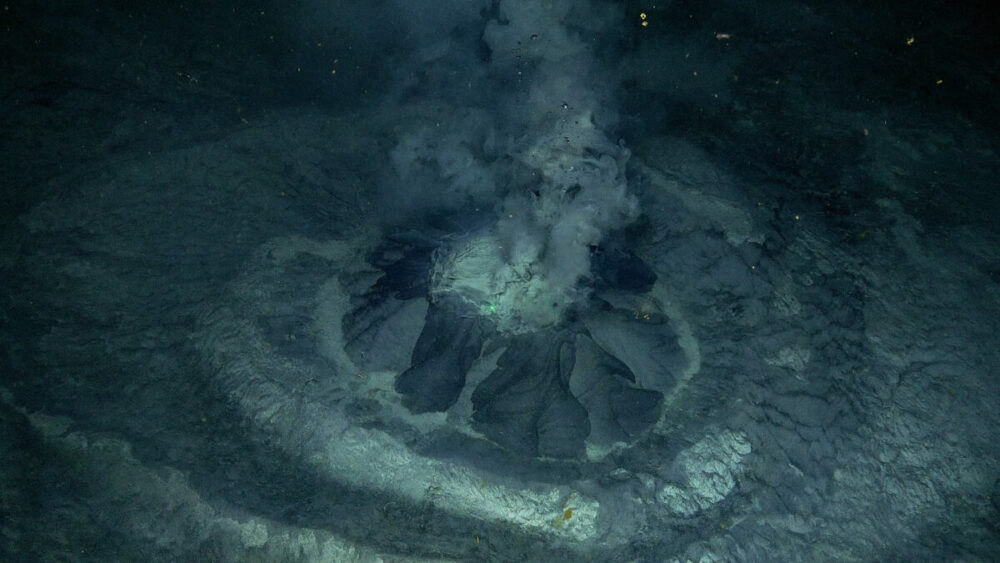
The Ocean Rising initiative, a collaborative effort between Schmidt Ocean Institute and Nekton, has become a source of inspiration for the talented fashion designer Jenny Packham.
The vibrant marine ecosystems of the Maldives have long been a source of wonder and inspiration for scientists. The Nekton Knowledge Exchange programme, part of the First Descent: Maldives mission, continued in Oxford, July 2024 with the visit of Maldivian scientists Tonti & Iru.
Embroidery Designs from “Ocean Rising x UNIQLO”: Global fashion powerhouse UNIQLO is introducing a series of ocean-themed embroidery designs at RE.UNIQLO Studio to highlight ocean conservation through fashion
The Ocean Census Arctic Deep Expedition has documented extraordinary biodiversity living thousands of metres below the Arctic surface, in a region now threatened by ocean warming and deep seabed mining.
For the second year running, the free Deep-Sea and Ocean Science Massive Open Online Course (MOOC) is your opportunity to build your knowledge, awareness, and passion for deep-sea science and the specialised technologies and tactics deployed to explore this type of environment.
Returning for their 10th edition, the Ocean Awards 2025 is held in partnership with BOAT International and in association with Kensington Yachts from 2025. The annual awards celebrate a wealth of extraordinary personal and collective efforts to save our seas, from local heroes to renowned scientists and pioneering innovators.